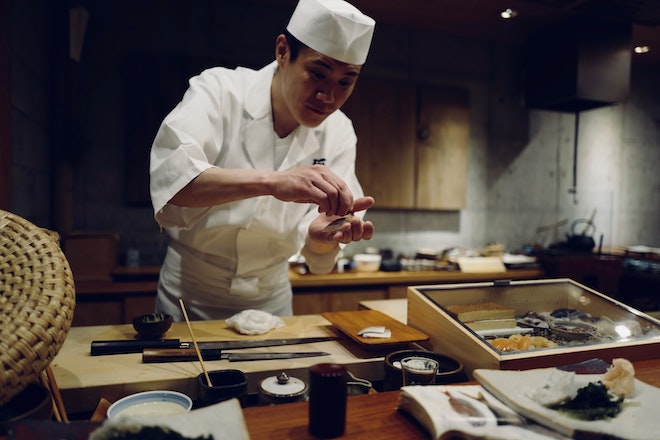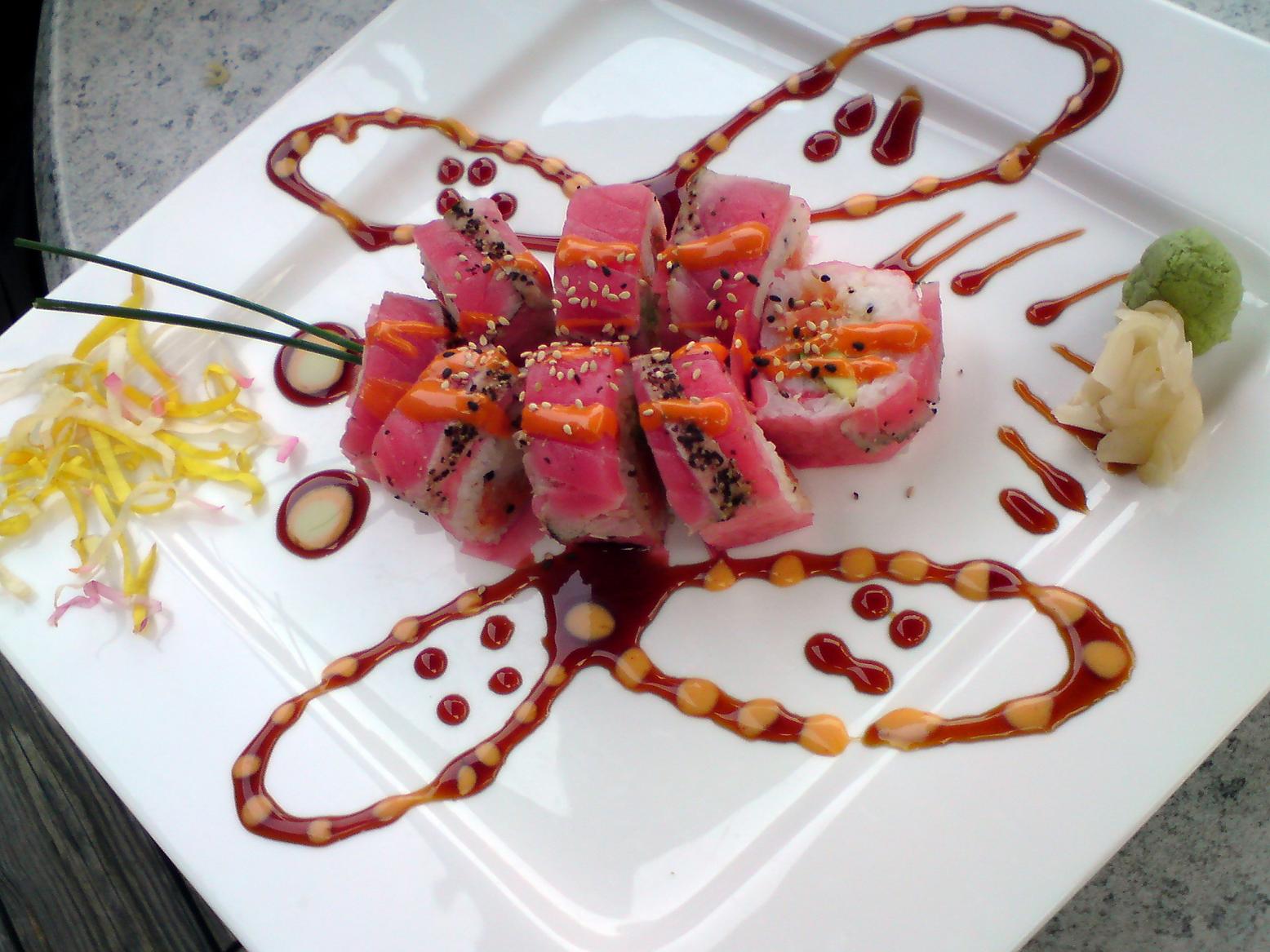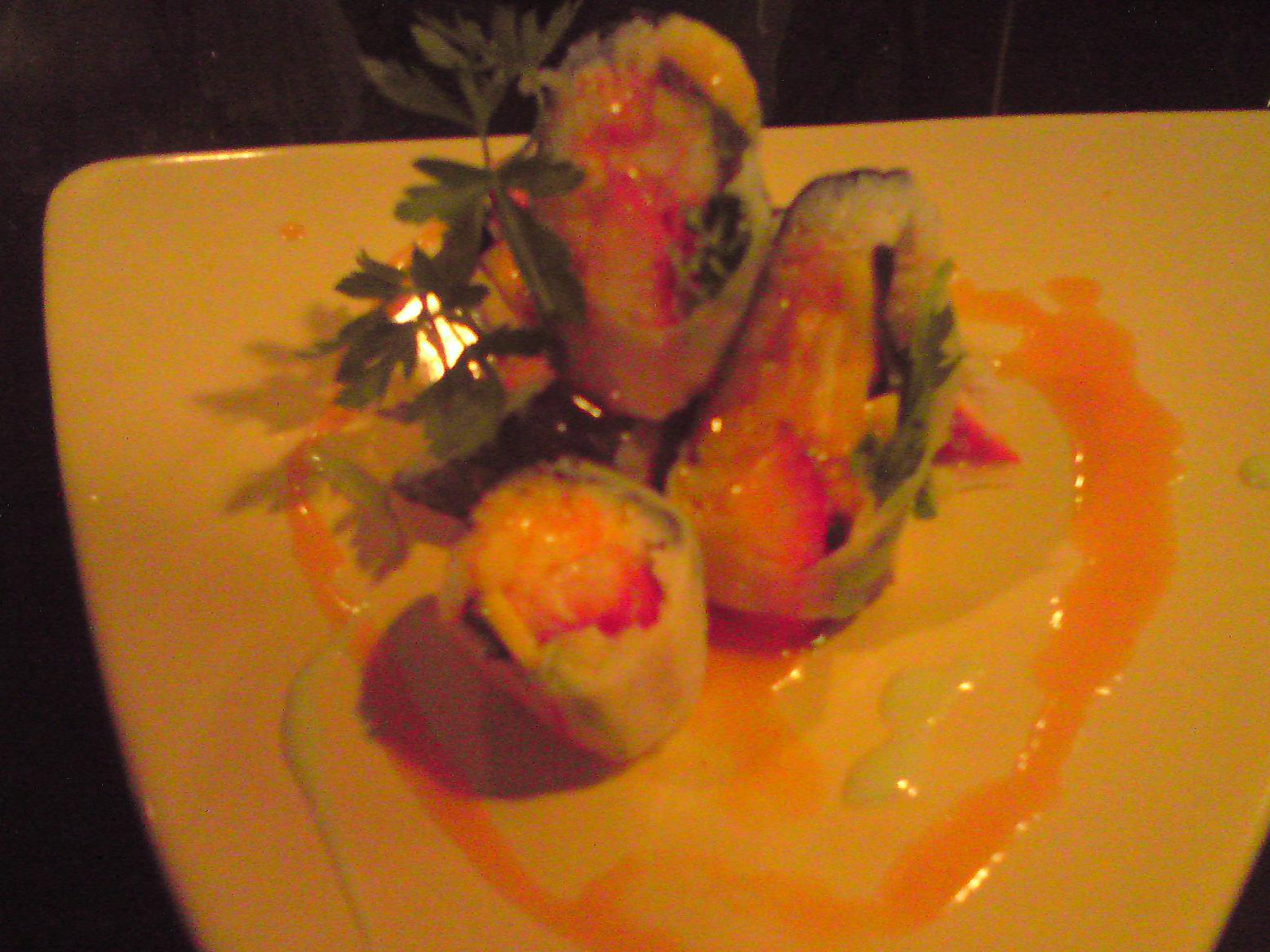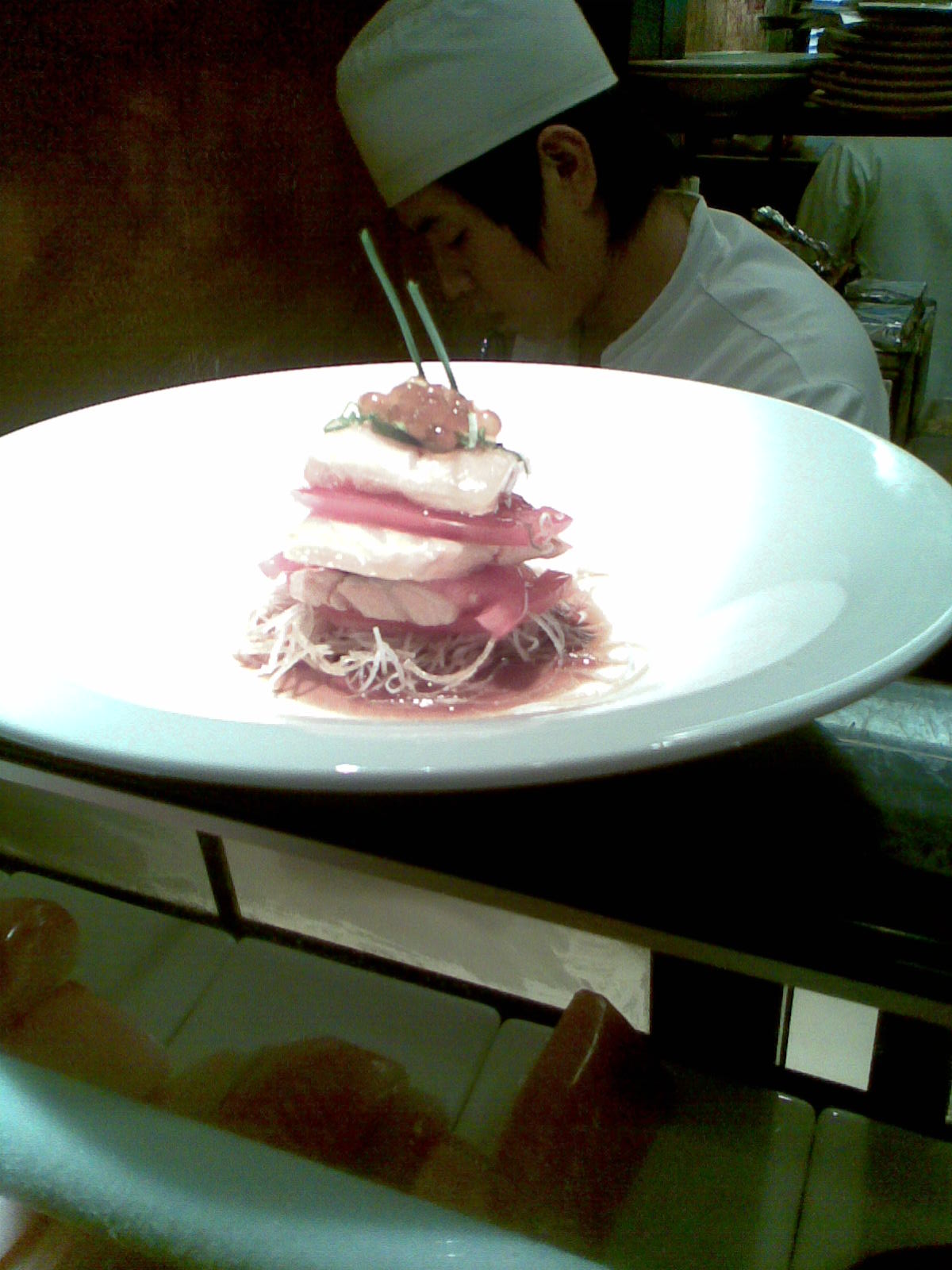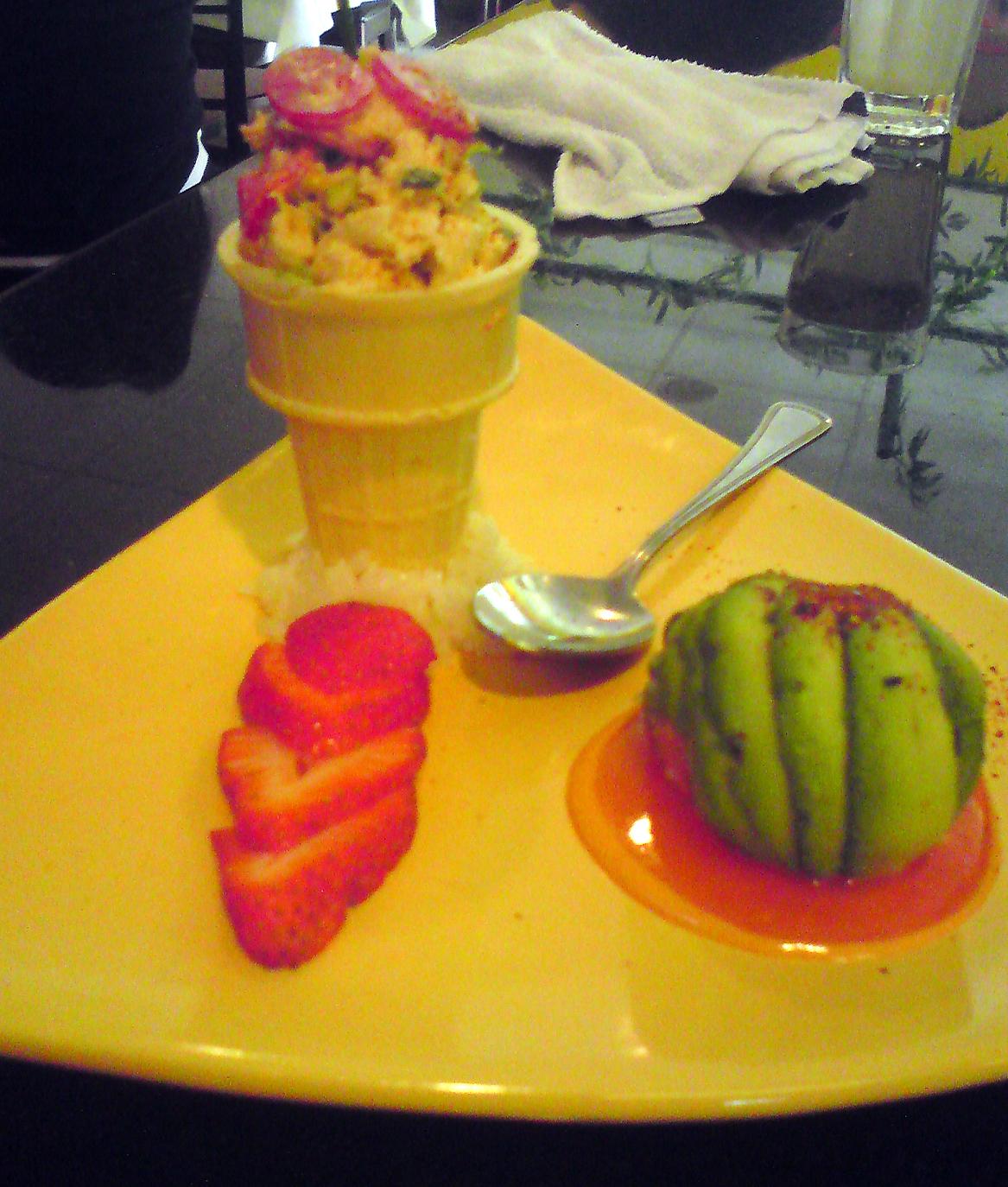“When Old Man cook, it more tasty, right?” Danny glanced at me. We sat at the bar. He was hunched over his dinner: white rice, beef cooked in oyster sauce and Chinese cabbage.
I took another bite. I was sympathetic to Chen Sifu’s cooking, since I’d been told my own cooking was pretty bland. But Danny was right; whenever Chen Sifu cooked, it required hibachi hot mustard to make it an enjoyable experience. I nodded.
“Yeah. See, this guy, no good.” He shook his head, then glared at the contents of his bowl. “I think no one teach him. He just learn by watching. He…” Danny paused, and struggled for the word. He barked something at Tracy, the server, in Fukienese.
Tracy’s eyes didn’t stray from the flat screen television mounted against the wall. “Like a job. He cook like a job,” she mumbled. Anthony Bourdain’s No Reservations was on. He was eating clam testes or snail gizzards or something.
“Yeah. He cook like it just a job. He only use his mind, you know? He doesn’t use his heart.” He put down his chopsticks, and placed his hands at the center of his chest. With curved pointer fingers on both his hands and jutted thumbs, he formed a small heart to illustrate his meaning. “The Old Man, he uses his heart, and that’s why his food taste better. This guy, you watch him cook, you never see him taste his food, right?”
I noticed that, and did think it odd. Or the fact when I first started learning, he never tasted my dishes, or instructed me to do so, before serving it.
“See? All great chefs: Japanese, French, Italian, always taste food. Ming Jai, you cook sautéed noodles, you gotta pick up noodle, and,” he mimicked slurping up a single noodle from a closed fist, “and taste. Listen, I know. My first teacher, he Japanese, he tell me: don’t give food to customers you wouldn’t eat yourself. Right? Japanese chef, they carry spoon with them, so they can taste all their food. They taste, then they say, ‘Okay, good.’ Problem with all Chinese chefs, man, all no good. All cook like just a job.” He simulated cooking in a wok, sautéing food with one hand and shoving the contents with a spoon in the other. “Put it down, don’t even taste it. ‘I’m done.’ Just a job to them. Stupid.”
When Danny got excited, his eyes, already large and playful, became enormous. I remember they were the size of our dinner bowls the other day, when he got carded trying to cash in a winning scratch-off ticket.
I told him it was because he looked like a 12-year old boy.
“No, Ming Jai, you don’t understand – I buy ticket from them! Shit, I give them money, no problem, no ID. I try and take money, they check ID. I like, ‘Fuck man.’”
Oh, I thought about that for a second. Fuck man, I agreed.
His eyes were like that now, and he appeared extra animated with his long, thick black hair jutting out omnidirectionally with a permanent case of bed head. The culinary arts were his passion, and he displayed it with every new dish he created. His Amazing Tuna Roll sold even faster than he anticipated, and backed up the sushi bar for an hour: he coated layers of ruddy, Big-eyed tuna with course black pepper, then layered it atop yellow soy paper that enclosed spicy crunchy tuna, white tuna, and fleshy avocado meat. When he seared the pepper into the tuna meat with the focused, blue heat of his handheld blow torch, the aroma of zesty grilled fish danced across our small dining room.
His Lobster Meat Summer Roll required no enticing to sell. Servers carried it to their table, and customers who spotted the cooked lobster meat wrapped in spring mix and orange mangos, peeking out of vinegar sushi rice and a rice wrap, simply pointed and said, “I want that.” One early Saturday evening, a table of six ordered four, and eighty-sixed our supply of lobster for the weekend. We sold 68 of those rolls in two weeks.
Of course, not everything worked out. The Grilled King Salmon Napoleon looked beautiful, with two layers of pink salmon, crisp tomato and jalapeno stacked high, then garnished with dill. But his special yuzu sauce lacked the punch he sought, and customers remarked it was a little bland. We quickly took it off the menu.
The Dancing Tuna also struggled. A cooked white tuna salad mixed with mayo and eel sauce was served in an ice cream cone, along with a “Tuna Dumpling” on the side: spicy crunchy tuna wrapped with layers of avocado, finished with a sweet chili sauce. The presentation received strange stares. Diners said they enjoyed the dish – though no one ever ate the ice cream cone, as Danny intended.
Regardless, Danny’s passion shined through every slice of fish, every garnish, his every motion behind that sushi bar; that was clear since he plated his first dish. He created height by stacking roll pieces, stylistically a French technique, instead of laying it out on the plate. He brought with him small LED lights the size of ice cubes, which he buried beneath white radish or smothered with ice, to light up sushi and sashimi platters with splashes of red and violet. The other day, he talked about a new special he wanted to try using stacked soup spoons, revealing more of his French influence.
To him, concocting cuisine required more than art, more than science. It required love in every detail. Anything less was unacceptable.
“You see even when I do sushi rice? Always, always have to taste first. Take a little piece,” he pretended to take a bite of rice. “Check to make sure okay-la. Good flavor? Okay.”
He touched his chest again. “Remember when you cook, Ming Jai, not come from your mind. Good cooking come from your heart.”
Photo Credit: Thomas Marban
